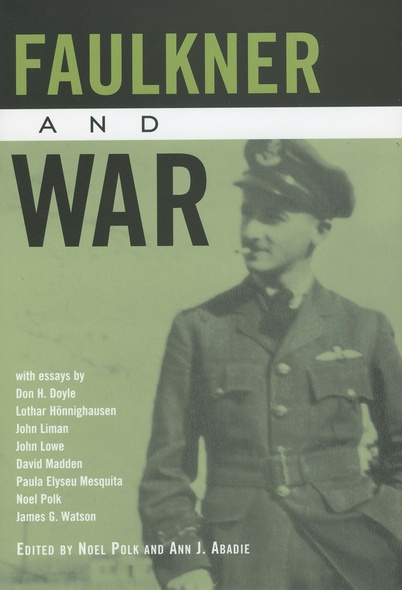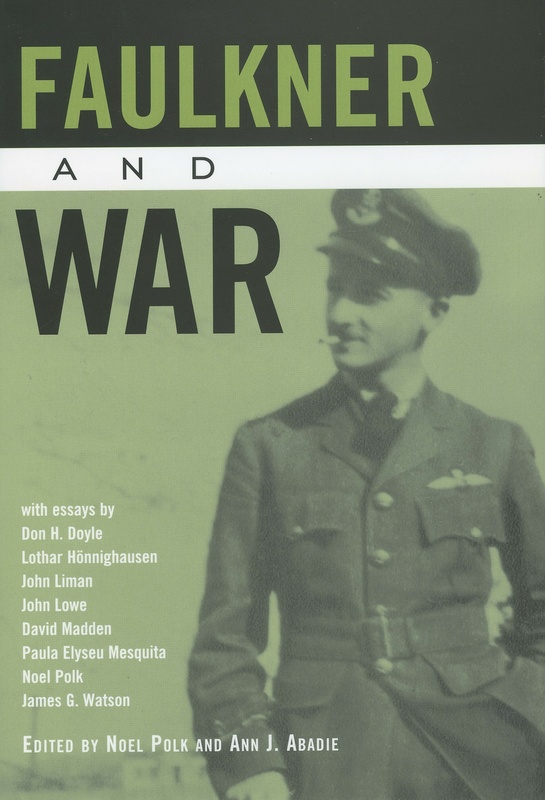There are three wars in the mind and in the art of William Faulkner—the American Civil War, World War I, and World War II. Although he did not fight in any war, he postured as a veteran flyer, for he had enlisted in the Royal Flying Corps in Canada. In his novels, short stories, essays, and letters, war remained a looming subject.
Faulkner and War, a collection of essays from the Faulkner and Yoknapatawpha Conference, held at the University of Mississippi in 2001, explores the role that war played in the life and work of a writer whose career seems forever poised against a backdrop of wars going on or recently ended or in the volatile years between. Perhaps most significant for all his works was the Civil War, which had ended thirty-two years before Faulkner was born. Yet it was the vast, escapable panorama against which he set his novels of the anguished South.
John Limon discusses Faulkner’s attempt to show how much of the sense of reality that the Great War produced could be rendered in fiction without explicit reference to it, as, for example, in one novel seemingly remote from the war, As I Lay Dying. Lothar Hönnighausen examines Faulkner’s evolving ideological attitudes toward war in Soldiers’ Pay, A Fable, and The Mansion.
These and other essays give illumination to Faulkner’s close analysis of war and its consequences as they appear in his work.
Noel Polk (Editor)
Noel Polk (1943-2012) was professor of English at the University of Southern Mississippi and Mississippi State University, author of many critical studies on Welty and Faulkner, and coeditor of the Library of America edition of Faulkner’s works.
Ann J. Abadie (Editor)
Ann J. Abadie (1939–2024) was associate director emerita of the Center for the Study of Southern Culture at the University of Mississippi as well as coeditor of numerous scholarly collections from the Faulkner and Yoknapatawpha Conference and other books published by University Press of Mississippi.






